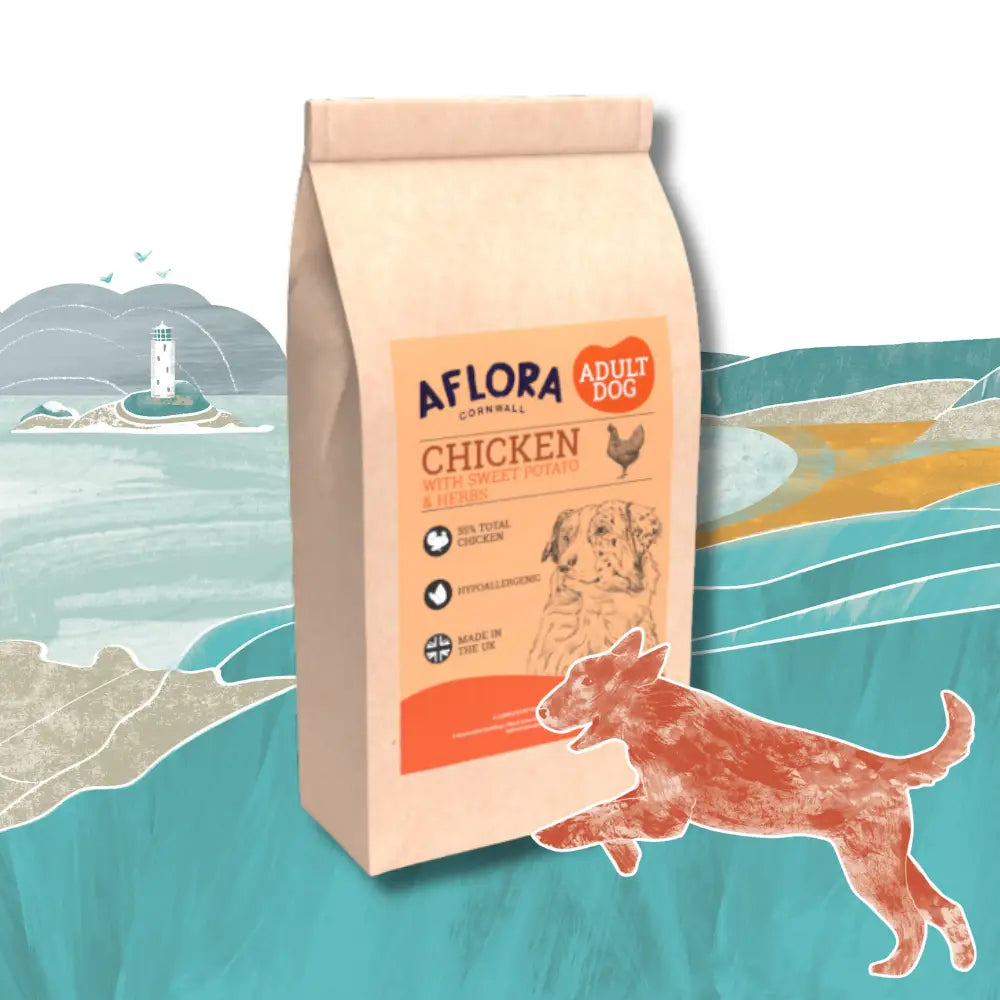As dog owners, we often observe our furry friends engaging in curious behaviours, one of which is eating grass. This seemingly odd habit can leave many of us puzzled and concerned about our pets' health. While it's common, understanding why dogs eat grass and knowing how to address this behaviour is crucial for their well-being. In this blog, we will explore the potential reasons behind grass-eating in dogs and provide guidance on what to do if your dog frequently munches on greenery.
Common Reasons Why Dogs Eat Grass
1. Natural Instinct
One of the most widely accepted theories is that eating grass is a natural instinct inherited from their wild ancestors. Wild canines, like wolves, often consume grass as part of their diet, either directly or indirectly through the stomach contents of their herbivore prey. This behavior may have been passed down through generations.
2. Nutritional Deficiency
Dogs may eat grass to compensate for nutritional deficiencies in their diet. Grass contains certain vitamins, minerals, and fiber that might be lacking in their regular food. If your dog’s diet is not well-balanced, they might instinctively seek out grass to fulfill their nutritional needs.
3. Digestive Aid
Grass consumption can act as a digestive aid for dogs. The fibrous nature of grass can help stimulate their digestive tract, potentially alleviating issues such as constipation. Some dogs may also eat grass to induce vomiting when they have an upset stomach, which can help them expel harmful substances.
4. Boredom or Anxiety
In some cases, dogs may eat grass out of boredom or anxiety. Just like humans, dogs can develop repetitive behaviours when they are not mentally stimulated or are feeling stressed. Grass-eating can be a way for them to occupy their time or cope with anxiety.
5. Simply Enjoy the Taste
It's also possible that some dogs simply enjoy the taste and texture of grass. Dogs explore the world with their mouths, and eating grass could be another way for them to experience their environment.
When Should You Be Concerned?
While occasional grass-eating is generally harmless, there are certain situations where it might indicate an underlying issue that requires attention. Here are some signs to watch out for:
1. Frequent Vomiting
If your dog frequently eats grass and vomits afterward, it could be a sign of a gastrointestinal issue. Persistent vomiting warrants a visit to the vet to rule out any serious conditions.
2. Excessive Grass Consumption
If your dog is eating large amounts of grass regularly, it might indicate a nutritional deficiency or other health problems. Consult your veterinarian to evaluate their diet and overall health.
3. Changes in Behaviour
Noticeable changes in your dog's behaviour, such as increased anxiety or restlessness, along with grass-eating, should be addressed. This could be a sign of psychological stress that needs to be managed.
4. Ingestion of Harmful Plants
Ensure that the grass your dog is eating is free from pesticides, herbicides, and other chemicals. Ingesting treated grass can be toxic and harmful to your pet.
What to Do If Your Dog Eats Grass
1. Evaluate Their Diet
Ensure that your dog is receiving a well-balanced diet that meets all their nutritional needs. High-quality dog food that is rich in vitamins, minerals, and fibre can help reduce the likelihood of grass-eating due to nutritional deficiencies. Consider adding vegetables or dietary supplements if necessary.
2. Provide Adequate Mental Stimulation
Boredom and anxiety can be mitigated by providing your dog with plenty of mental and physical stimulation. Engage them in interactive play, provide puzzle toys, and ensure they get regular exercise. A tired dog is less likely to resort to eating grass out of boredom.
3. Monitor Their Behaviour
Keep an eye on your dog’s grass-eating habits and look for any patterns. Note whether it occurs at specific times, during certain activities, or in particular environments. This can help you identify any triggers and address them accordingly.
4. Create a Safe Outdoor Environment
If your dog enjoys eating grass, ensure that your yard is free from harmful chemicals. Create a safe and clean environment where they can indulge in their habit without risking their health. Consider planting a small patch of dog-friendly grass or herbs specifically for them.
5. Consult Your Vet
If you have any concerns about your dog’s grass-eating behaviour, don’t hesitate to consult your veterinarian. They can conduct a thorough examination to rule out any underlying health issues and provide tailored advice based on your dog's specific needs.
Conclusion
Understanding why dogs eat grass and knowing how to address this behaviour is essential for responsible pet ownership. While grass-eating is usually harmless and can be attributed to various factors such as natural instinct, nutritional deficiencies, or boredom, it's important to monitor your dog's habits and ensure their overall well-being.
By providing a balanced diet, adequate mental and physical stimulation, and a safe environment, you can help reduce the frequency of grass-eating and ensure that your dog remains healthy and happy. If in doubt, always seek professional advice from your veterinarian to address any concerns and keep your furry friend in optimal health.
Remember, each dog is unique, and what works for one may not work for another. By paying attention to your dog’s individual needs and behaviours, you can provide the best care and support for your loyal companion.























